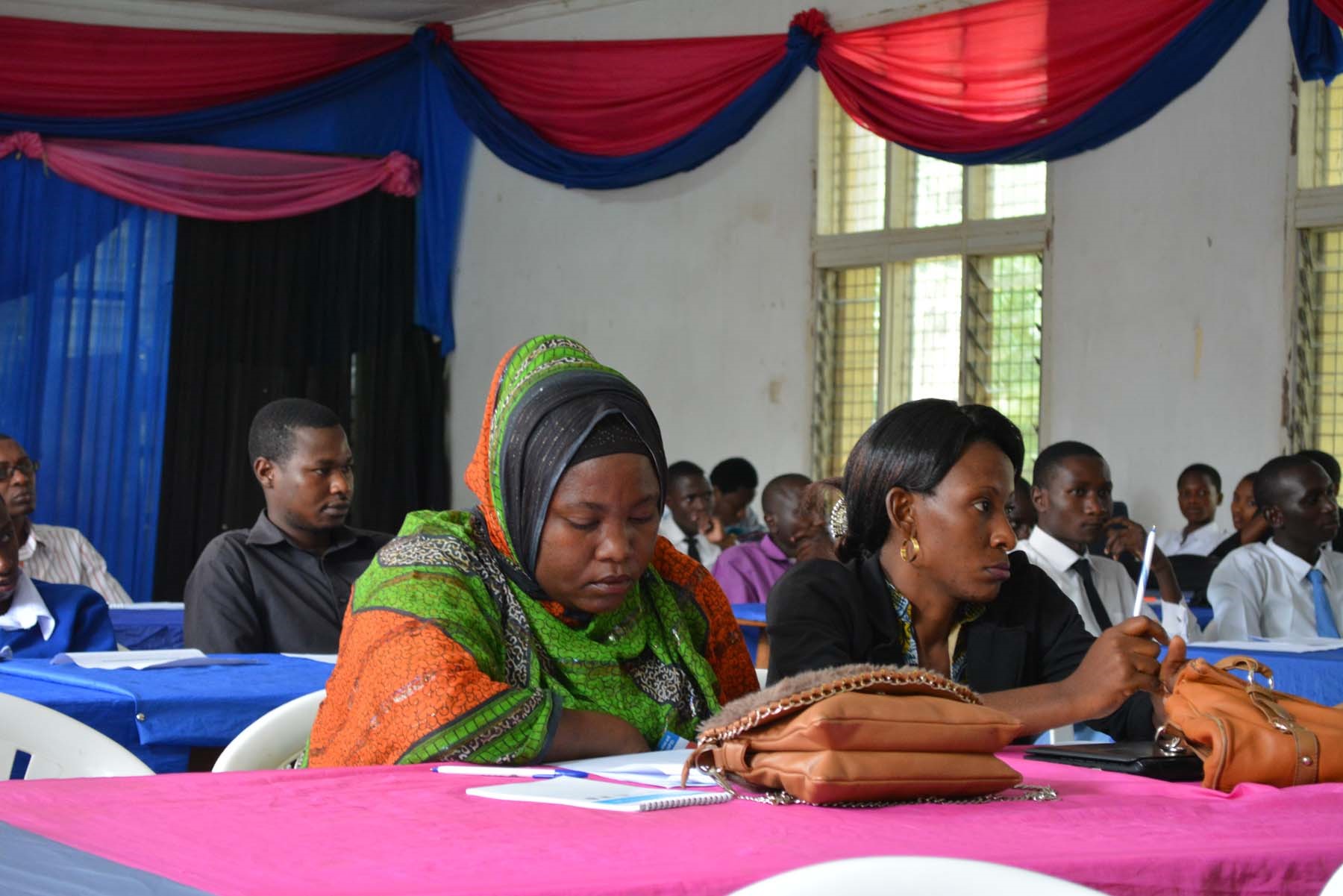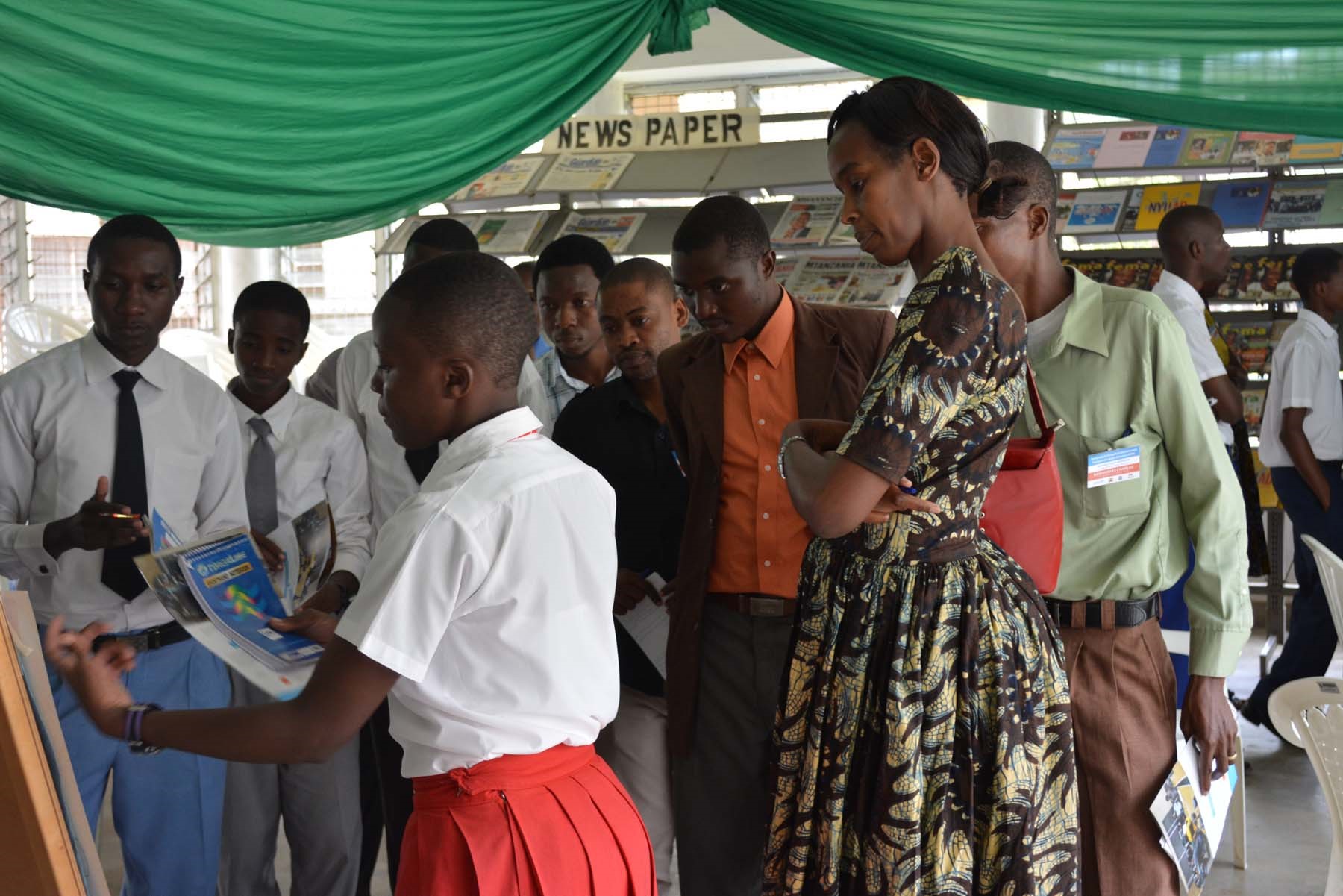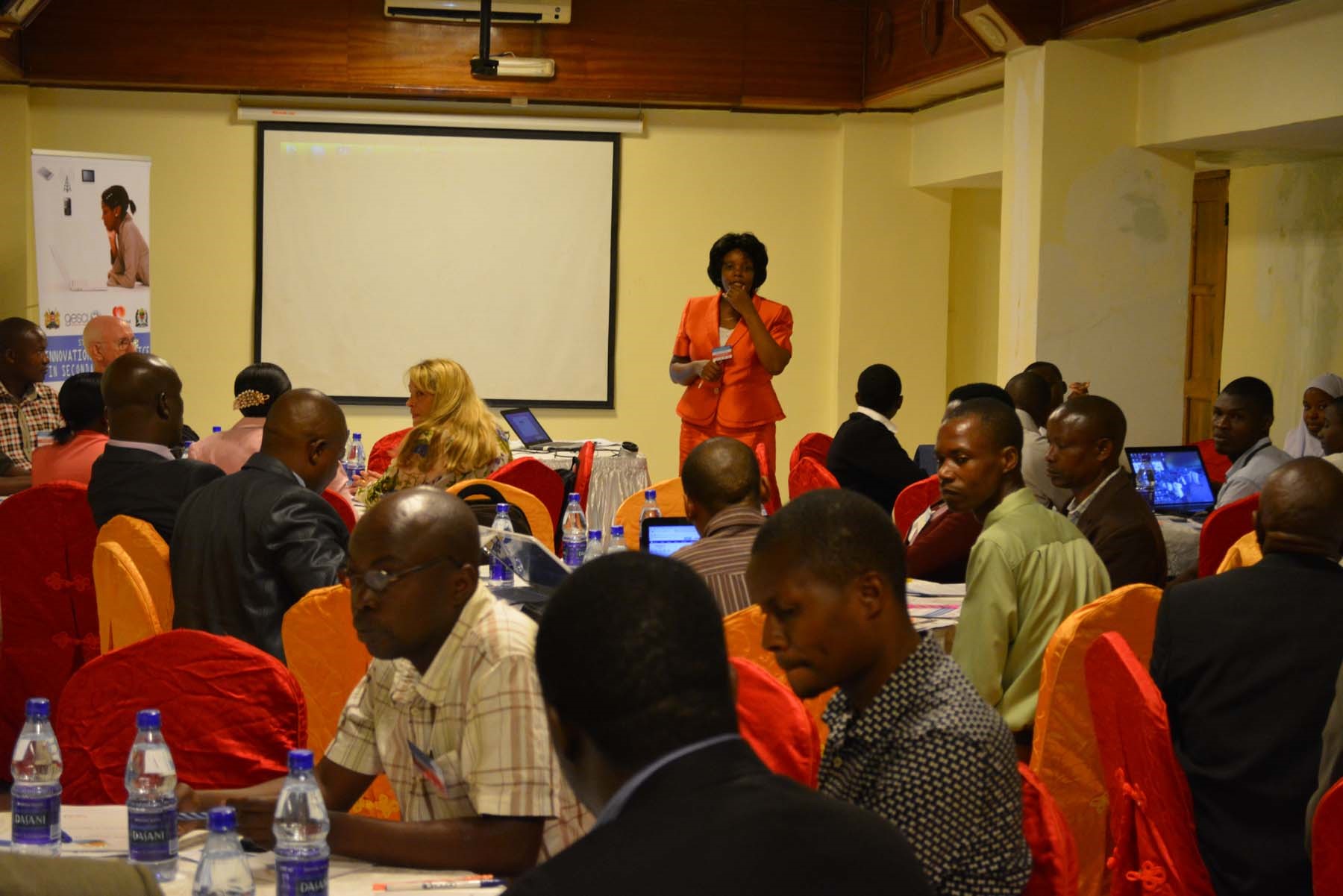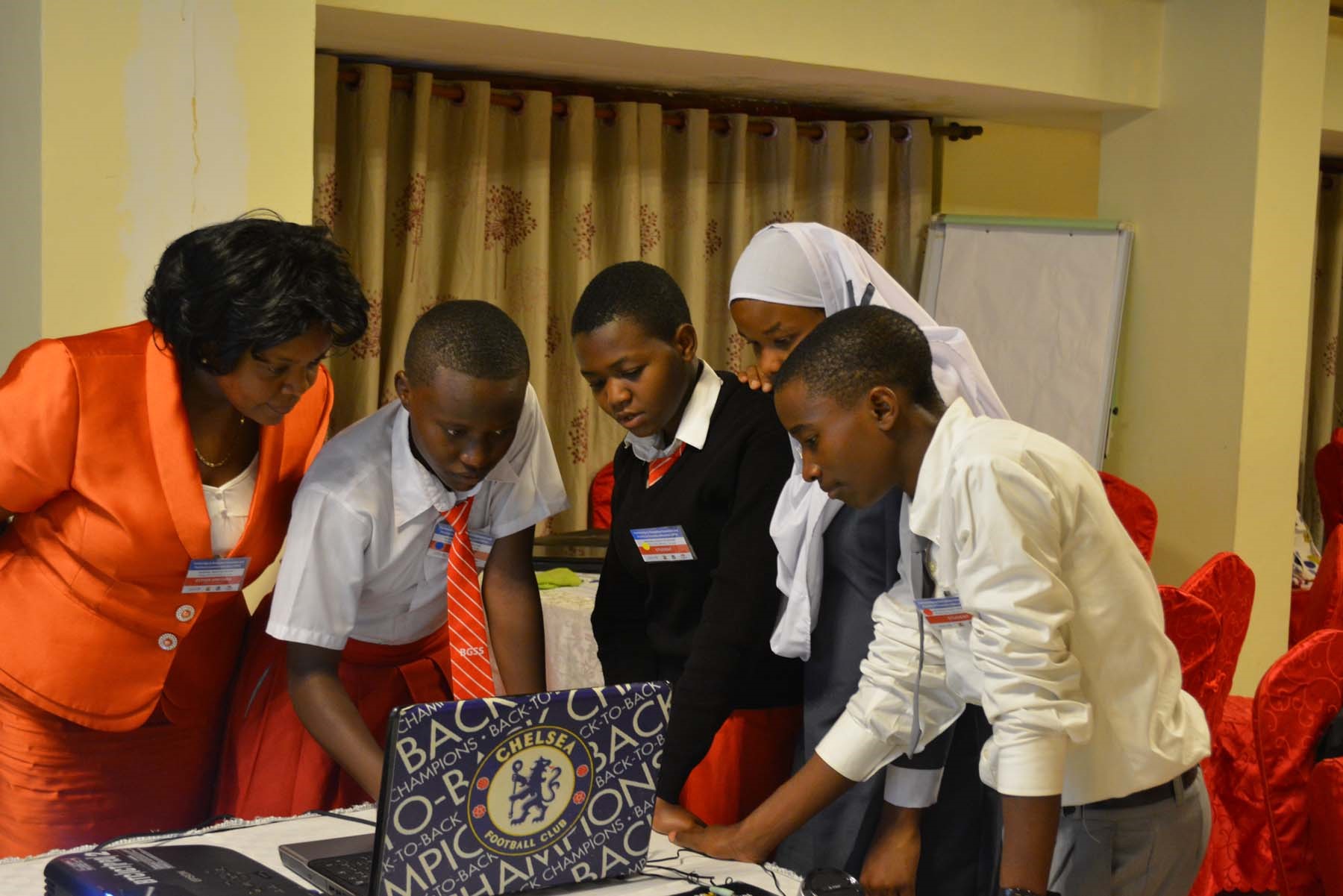What have we done? What impact have we made? What have we learned? How will we use what we have learned to inform future interactions? These questions were posed by Patti Swarts, GESCI’s Director of Programmes during the Strengthening Innovation and Practice in Secondary Education (SIPSE) national policy workshop in Mwanza, Tanzania on 29 April 2015.
The purpose of the workshop was to develop policy recommendations on issues around integration of ICT in secondary education in Tanzania based on lessons from the implementation of the SIPSE project. Participants deliberated on trends in education in developing countries – especially the growing demands on teacher curriculum delivery in relation to student-teacher ratios and advances in technology. The national workshop was preceded by a regional workshop at Butimba Teachers’ College on 28 April 2015. Both were organized around learnings from SIPSE monitoring and evaluation research findings, and brought together teachers, students, school heads, SIPSE team leaders, SIPSE master trainers and regional education managers.
Participants at the regional workshop at Butimba Teachers’ College, Mwanza
Group discussion at the regional workshop at Butimba Teachers’ College
Participants at the national workshop at New Mwanza Hotel, Mwanza
SIPSE project manager Esther Mwiyera (L) with students from Bwiru Girls Secondary (2nd left and centre) and from Sanjo Secondary School (right and 2nd right)
What have we done? What impact have we made? What have we learned? How will we use what we have learned to inform future interactions? These questions were posed by Patti Swarts, GESCI’s Director of Programmes during the Strengthening Innovation and Practice in Secondary Education (SIPSE) national policy workshop in Mwanza, Tanzania on 29 April 2015.
The purpose of the workshop was to develop policy recommendations on issues around integration of ICT in secondary education in Tanzania based on lessons from the implementation of the SIPSE project. Participants deliberated on trends in education in developing countries – especially the growing demands on teacher curriculum delivery in relation to student-teacher ratios and advances in technology. The national workshop was preceded by a regional workshop at Butimba Teachers’ College on 28 April 2015. Both were organized around learnings from SIPSE monitoring and evaluation research findings, and brought together teachers, students, school heads, SIPSE team leaders, SIPSE master trainers and regional education managers.
The vice principal of Butimba Teachers College in his opening remarks on 28 April highlighted the need to break technology barriers in education in Tanzania largely due to adaptation challenges as a result of lack of ICT infrastructure.
On both days participants broke into four groups to discuss the thematic areas of
Leadership and Planning, Teacher Professional Development, Curriculum and Content and
Infrastructure and Resources to inform policy recommendations on ICT use in teacher development in Tanzania. Given the 86 attendees from mixed backgrounds on both days, there was no shortage of perspectives! “SIPSE is indeed a piece of action research about how teachers can use technology to improve their teaching and at the same time encourage students to use richer resources from the internet,” said GESCI CEO Jerome Morrissey.
The following is a summary of participants’ recommendations to address the challenges of integration of ICT in secondary education in Tanzania.
- Leadership and Planning: Each school should have an action plan to implement the use and application of ICT as a tool for teaching and learning.
- Teacher Professional Development: Every Teachers’ College and school should be equipped with basic ICT infrastructure in order to provide professional development for teachers with basic 21st century skills.
- Curriculum and Content: There’s a need to comprehensively review the existing ICT curriculum to cater for ICT integration in all subjects.
- Infrastructure and Resources: Resources for procurement of ICT equipment should be regularized and mainstreamed in the budget of the ministry of education and vocational training.
These recommendations will not only inform educational planning perspective in Tanzania, but also future GESCI projects.
At the workshop, teachers were awarded with certificates for successful completion of the project activities in the use of ICT to improve teaching and learning in STEM subjects under the SIPSE project. There were also awards ceremonies at the regional and national level in recognition of integration of ICT in project-based learning:
- Best school project: Sanjo Secondary School
- Runner-up school project: Bwiru Girls Secondary School
- Best school participation overall: Ngudu Secondary School
- Best teacher-guided student presentation: Omari Z. Ngakopeya, Sanjo Secondary School
- Best online Chat and Discussion forum participants: Michael Lyimo & Godwin Mugyabuso
Dr. Elia Kigba, the Director of Research, Information and Publications at Tanzania Institute of Education in his final remarks stressed on the importance of collaboration to identify any gaps and to avoid duplication of efforts in ICT Integration in schools that have already been supported through different initiatives. He called for a harmonized mapping of schools that require support. He emphasized support from the government of Tanzania for SIPSE activities.




